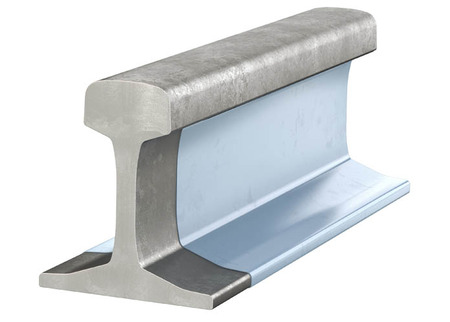Coated Rail
Sustainable protection against corrosion and leakage current.
Sustainable protection against corrosion and leakage current.

During their lifespan, rails are exposed to many different influences. Salt, water, moisture and stray currents can cause severe damage, such as, for example, corrosion. Although not always visible, corrosion can critically weaken the foot of the rails. Stray current corrosion has a severe impact on rail quality, creating an elevated risk of rail breakage. Therefore, unprotected rails are a big hazard for safe train operation.
Corrosive rail environments, such as coastal areas, wet tunnels, level crossings and stray current conditions require protective measures to ensure maximum rail life. voestalpine offers durable coated rail solutions specially designed to deal with these challenges. The coatings are insulated and waterproof, and can be applied to all types of flat bottom rails. With a service life expectancy of 20 years, coated rails provide an excellent method for preventing corrosion.
Improved durability. For the quality and durability of the rails in level crossings, the adhesion of the coating is particularly important. This is why prior to coating these rail sections are specifically treated to create an optimal surface for adhesion. The coatings are then expertly applied under controlled conditions. The coating bonds with all permitted embedding compounds, which eliminates the need for a bonding primer. This means that no additional operations are required before and during installation.
Rails subjected to stray current leakage can be protected with a special insulating rubber coating. The insulating effect of this rubber coating protects the embedded rails at level crossings against the negative consequences of stray currents. The coating also protects the rail against salt used for icy roads, and against water during the autumn and winter months.
The exchange of rails in level crossings or tunnels is an expensive and time-consuming operation. The installation of prefabricated rails which have already been coated eliminates these time and cost issues. Moreover, this approach contributes to the improvement of the entire level crossing structure in terms of quality and durability.